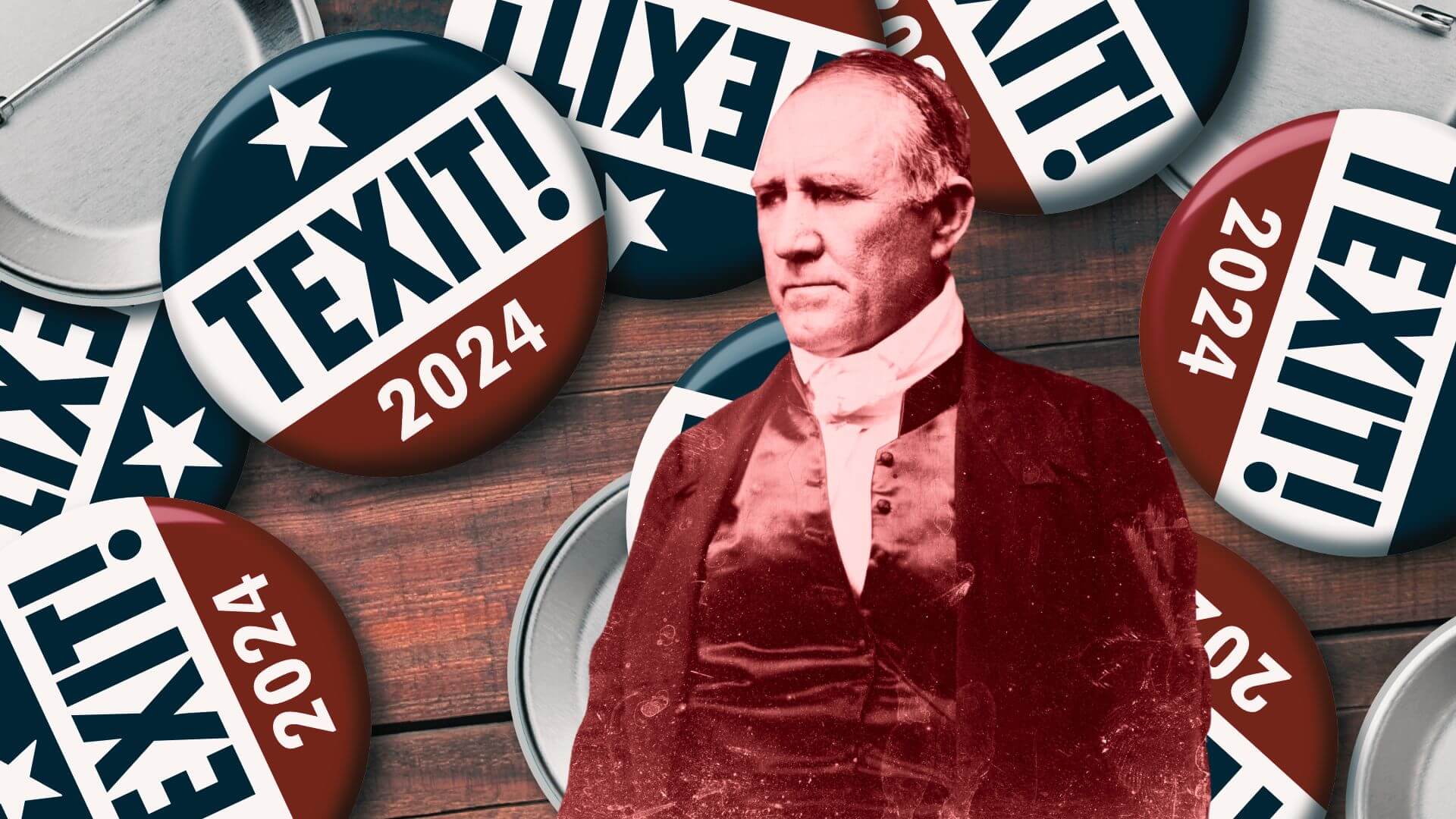Today marks the anniversary of Sam Houston being sworn in as the first President of the Republic of Texas. As a statesman, war hero, and visionary leader, Sam Houston’s governance laid down principles of autonomy, independence, and pragmatic governance. These principles are as pertinent today as in the mid-19th century, if not more so. As we commemorate this historic day, we can’t help but explore a thought-provoking question: Would Sam Houston support the modern-day Texas independence movement?
Houston’s Legacy Revisited
The enduring legacy of Sam Houston is complex and multi-faceted, a blend of political pragmatism and moral fortitude. As President of the Republic of Texas, Houston faced challenges that tested his leadership skills to the fullest. From handling tensions with Mexico to setting up a nascent government, Houston navigated through uncharted waters with a judicious blend of idealism and practical governance. However, it is not just his actions but also his foresight that continues to reverberate throughout Texas history. During his time, Houston worked to build a resilient framework that could withstand not just external threats but also internal turmoil.
Houston’s Unionism: Historical Context
Sam Houston’s Unionism during the 1860s was complex. His stance against Texas’ secession from the Union was deeply rooted in the era’s context. At that time, Houston saw a federal system that, despite its imperfections, still afforded states significant freedoms and rights. He feared the chaos that a rush to secession could bring and hoped for reconciliation and reform within the Union. However, it is crucial to recognize that his Unionism was not an ideology set in stone but a pragmatic response to a specific set of circumstances.
The Preconditions: A Close Look
Houston was explicit about the criteria that would justify separation from the Union. In one of his speeches, he laid down a compelling framework: “What is there that is free that we have not? Are our rights invaded and no Government ready to protect them? No! Are our institutions wrested from us and others foreign to our taste forced upon us? No! Is the right of free speech, a free press, or free suffrage taken from us? No! Has our property been taken from us and the Government failed to interpose when called upon? No, none of these! The rights of the States and the rights of individuals are still maintained.”
Houston’s preconditions for considering separation from the Union were clear. They were rooted in the protection of individual and state rights, the maintenance of societal institutions, and the safeguarding of property.
Current Day Relevance: Have the Preconditions Been Met?
When it comes to modern Texas, one must confront the unsettling reality that many of Houston’s conditions for maintaining a union with the federal government appear to have been compromised. The issue of free speech has come under attack, with instances of government-sponsored censorship not only through legislation but also through outsourcing suppression to external platforms. Similarly, a free press, an institution Houston considered vital for democracy, has been compromised through federal interference and favoritism towards select media outlets.
Election integrity, another cornerstone of Houston’s vision, has been marred by controversy and skepticism. Not only have questions been raised about the electoral process, but the federal government has also engaged in ostracizing and condemning those who have legitimate concerns. Equally troubling is the state of the judiciary, which was viewed by Houston as the last resort for maintaining constitutional rights. Today, courts have been accused of becoming political tools, weaponized against opponents rather than serving as impartial arbiters of justice.
Furthermore, Houston’s emphasis on protecting property rights and state sovereignty echoes in the ongoing border security crisis. Here, the federal government not only fails to protect Texas but also actively colludes with foreign entities and criminal organizations, compromising the state’s autonomy and security. Worse, instead of interposing to correct these wrongs, the federal government has taken legal action against Texas, deepening the rift between state and federal governance.
Would Houston Support TEXIT?
Given this modern landscape, it becomes increasingly clear that the federal government has failed to meet Houston’s preconditions for maintaining the Union. It is reasonable to conclude that Houston would likely be a supporter of TEXIT today. The erosion of state rights, stifling of free speech, and challenges to the integrity of constitutional rights—all resonate with Houston’s criteria for contemplating separation.
In closing, as we commemorate the anniversary of Sam Houston’s leadership in the Republic of Texas, the occasion offers more than just an opportunity for historical reflection. It also presents actionable insights into our current political landscape. If Houston were alive today, given the multiple violations of his cautionary criteria, he would not only be contemplating separation from the federal government but actively advocating for it. The best way to honor Sam Houston’s legacy and principles is to continue the work he began—to strive for a Texas that is free, independent, and true to the values he cherished. To truly honor his legacy, sign the petition for Texas independence and join the Texas Nationalist Movement today.





Login to leave a comment